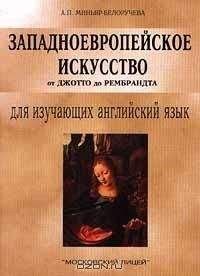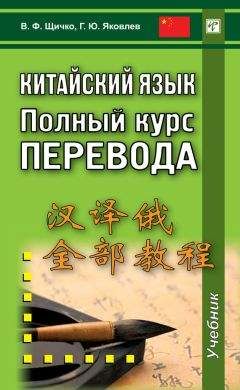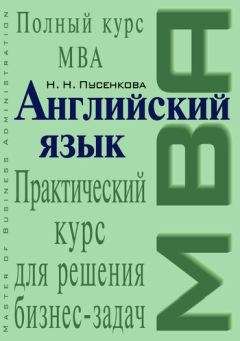Илья Франк - Английский язык с Грэмом Грином. Третий человек
scoundrel ['skaundr(q)l], excellent ['eks(q)l(q)nt], rascality [rRs'kxlItI], rascal ['rRsk(q)l], geniality ["Gi:nI'xlItI], pleasure ['pleZq], devil ['dev(q)l], diminish [dI'mInIS], horizon [hq'raIz(q)n], visible ['vIzqbl], fond [fOnd], quad [kwOd], admiration ["xdmI'reIS(q)n], horrible ['hOrqbl], gift [gIft], eternal [I'tq:n(q)l], youth [ju:T]
"Harry."
"Hullo, Rollo."
Don't picture Harry Lime as a smooth scoundrel. He wasn't that. The picture I have of him on my files is an excellent one: he is caught by a street photographer with his stocky legs apart, big shoulders a little hunched, a belly that has known too much good food too long, on his face a look of cheerful rascality, a geniality, a recognition that his happiness will make the world's day. Now he didn't make the mistake of putting out a hand—that might have been rejected, but instead just patted Martins on the elbow and said, "How are things?"
"We've got to talk, Harry."
"Of course."
"Alone."
"We couldn't be more alone than here."
He had always known the ropes, and even in the smashed pleasure park he knew them, tipping the woman in charge of the Wheel, so that they might have a car to themselves. He said, "Lovers used to do this in the old days, but they haven't the money to spare, poor devils, now," and he looked out of the window of the swaying rising car at the figures diminishing below with what looked like genuine commiseration.
Very slowly on one side of them the city sank; very slowly on the other the great cross girders of the Wheel rose into sight. As the horizon slid away the Danube became visible, and the piers of the Kaiser Friedrich Brücke lifted above the houses.
"Well," Harry said, "it's good to see you, Rollo."
"I was at your funeral."
"That was pretty smart of me, wasn't it?"
"Not so smart for your girl. She was there too—in tears."
"She's a good little thing," Harry said. "I'm very fond of her."
"I didn't believe the police when they told me about you."
Harry said, "I wouldn't have asked you to come if I'd known what was going to happen, but I didn't think the police were on to me."
"Were you going to cut me in on the spoils?"
"I've never kept you out of anything, old man, yet." He stood with his back to the door as the car swung upwards, and smiled back at Rollo Martins, who could remember him in just such an attitude in a secluded corner of the school quad, saying, "I've learnt a way to get out at night. It's absolutely safe. You are the only one I'm letting in on it." For the first time Rollo Martins looked back through the years without admiration, as he thought: "He's never grown up." Marlowe's devils wore squibs attached to their tails: evil was like Peter Pan—it carried with it the horrifying and horrible gift of eternal youth.
Martins said, "Have you ever visited the children's hospital (ты когда-нибудь посещал детскую больницу)? Have you seen any of your victims (ты видел когда-нибудь какую-нибудь из своих жертв)?"
Harry took a look at the toy landscape below (Гарри взглянул: «взял взгляд» на игрушечный пейзаж внизу) and came away from the door (и отошел прочь от дверцы). "I never feel quite safe in these things (я никогда не чувствую себя совершенно в безопасности: «сохранным» в этих штуках; to feel — ощупывать, осязать, трогать, прикасаться; чувствовать /себя как-л., в каком-л. состоянии/)," he said. He felt the back of the door with his hand (он нащупал заднюю часть двери своей рукой), as though he were afraid (как будто он был испуган) that it might fly open (что она могла бы распахнуться; to fly — лететь) and launch him into that iron-ribbed space (и выбросить его в это железно-реберное пространство; rib — ребро, часть каркаса). "Victims (жертвы)?" he asked (спросил он). "Don't be melodramatic, Rollo (не будь мелодраматичным, Ролло), look down there (посмотри туда вниз)," he went on (продолжил он), pointing through the window at the people (указывая через окно на людей) moving like black flies at the base of the Wheel (двигавшихся, как черные мухи, у основания Колеса). "Would you really feel any pity (почувствовал бы ты действительно какую-нибудь жалость) if one of those dots stopped moving (если бы одна из этих точек прекратила двигаться)—for ever (навсегда)? If I said you can have twenty thousand pounds for every dot that stops (если бы я сказал, что ты можешь иметь двадцать тысяч фунтов за каждую точку, которая останавливается), would you really (действительно бы ты), old man (старина), tell me to keep my money (сказал мне оставить себе мои деньги)—without hesitation (без колебания)? or would you calculate how many dots you could afford to spare (или бы ты посчитал, сколько точек ты мог бы позволить себе сохранить)? Free of income tax (свободные от подоходного налога), old man (старина). Free of income tax." He gave his boyish conspiratorial smile (он дал свою мальчишескую конспираторскую улыбку = он улыбнулся своей…), "It's the only way to save nowadays (это единственный способ копить в наши дни)."
"Couldn't you have stuck to tyres (ты не мог держаться шин = ограничиться шинами; to stick to smth. — держаться, придерживаться чего-л.)?"
"Like Cooler (как Кулер)? No, I've always been ambitious (нет, я всегда был амбициозен). "But they can't catch me, Rollo, you'll see (но они не смогут поймать меня, Ролло, ты увидишь). I'll pop up again (я всплыву снова; to pop up — внезапно подняться, вскочить; выскочить наверх). You can't keep a good man down (ты не можешь удержать хорошего человека внизу = препятствовать хорошему человеку развиваться; to keep down — задерживать рост, мешать развитию; держать в подчинении; притеснять, угнетать)." The car swung to a standstill at the highest point of the curve (кабинка качнулась к остановке = и остановилась на высочайшей точке изгиба) and Harry turned his back (и Гарри повернул свою спину = отвернулся) and gazed out of the window (и посмотрел наружу из окна = в окно; to gaze — пристально глядеть; вглядываться; уставиться). Martins thought (Мартинс подумал): one good shove (один хороший толчок) and I could break the glass (и я мог бы разбить стекло), and he pictured the body dropping among the flies (и он представил себе тело, падающее /на землю/ среди мух). He said, "You know the police are planning to dig up your body (ты знаешь, полиция намеревается выкопать твой труп): what will they find (что они найдут)?"
"Harbin (Харбина)," Harry replied with simplicity (Гарри ответил с простотой = просто). He turned away from the window and said (он отвернулся прочь от окна и сказал), "Look at the sky (посмотри на небо)."
The car had reached the top of the Wheel (кабинка достигла вершины Колеса) and hung there motionless (и висела там, неподвижная; to hang), while the stain of the sunset (пока пятно заката) ran in streaks (разбегалось прожилками) over the wrinkled papery sky (по сморщенному/смятому, бумажного вида небу; to wrinkle — морщить/ся/; мять/ся/, сминать/ся/) beyond the black girders (за черными балками).
"Why did the Russians try to take Anna Schmidt (почему русские попытались забрать Анну Шмидт)?"
"She had false papers, old man (у нее были поддельные документы, старина)."
"I thought perhaps you were just trying to get her here (я думал, что, возможно, ты просто пытался забрать ее сюда)—because she was your girl (потому что она была твоей девушкой)? Because you wanted her (потому что ты хотел ее)?"
Harry smiled (Гарри улыбнулся). "I haven't all that influence (я не имею всего этого влияния = такого влияния у меня нет)."
"What would have happened to her (что бы случилось с ней)?"
"Nothing very serious (ничего очень серьезного). She'd have been sent back to Hungary (она была бы отослана назад в Венгрию; to send). There's nothing against her really (против нее на самом деле нет ничего /серьезного/). She'd be infinitely better off in her own country (она жила бы бесконечно лучше в своей собственной стране) than being pushed around by the British police (чем будучи помыкаемой британской полицией; to push around — помыкать, хамить: «толкать вокруг»)."
"She hasn't told them anything about you (она им ничего не сказала о тебе)."
"She's a good little thing (она милая малышка)," Harry repeated with complacent pride (повторил Гарри с самодовольной гордостью).
"She loves you (она любит тебя)."
"Well, I gave her a good time while it lasted (ну, я дал ей хорошее время, пока оно длилось = дал ей возможность неплохо провести со мной время)."
"And I love her (и я люблю ее)."
"That's fine, old man (это прекрасно, старина). Be kind to her (будь добр к ней). She's worth it (она достойна этого). I'm glad (я рад)." He gave the impression of having arranged everything to everybody's satisfaction (он производил впечатление того, что он сумел устроить все ко всеобщему удовлетворению; to arrange — приводить в порядок, расставлять; устраивать, организовывать). "And you can help to keep her mouth shut (и ты можешь помочь хранить ее рот закрытым). Not that she knows anything that matters (не то что бы она знает что-либо, что имеет значение = хотя она и не знает ничего, что имело бы значение)."
"I'd like to knock you through the window (я бы хотел выбить = вытолкнуть тебя через окно)."
"But you won't, old man (но ты не сделаешь этого, старина). Our quarrels never last long (наши ссоры никогда не длятся долго). You remember that fearful one in the Monaco (ты помнишь ту ужасную одну = ссору в Монако), when we swore we were through (когда мы поклялись, что рвем друг с другом; to swear — клясться; to be through — заканчивать, ср.: I don't want anything more to do with you, we're through — я больше не хочу иметь с вами никаких дел, мы закончили). I'd trust you anywhere, Rollo (я бы доверился тебе везде, Ролло). Kurtz tried to persuade me not to come but I know you (Куртц пытался убедить меня не приходить, но я знаю тебя). Then he tried to persuade me to, well, arrange an accident (затем он попытался убедить меня, ну, устроить несчастный случай). He told me it would be quite easy in this car (он сказал мне, что это будет совершенно легко в этой кабинке)."
"Except that I'm the stronger man (исключая то, что я более сильный человек = вы не учли при этом, что я сильнее)."
"But I've got the gun (но у меня пистолет). You don't think a bullet wound would show when you hit that ground (ты /ведь/ не думаешь, что пулевая рана бы была видна, когда ты ударишься об землю)?" Again the car began to move (снова кабинка начала двигаться), sailing slowly down (плывя медленно вниз), until the flies were midgets (пока мухи не стали лилипутами; midget — карлик, лилипут), were recognisable human beings (не стали узнаваемыми человеческими существами). "What fools we are, Rollo, talking like this (какие дураки мы, Ролло, говоря так), as if I'd do that to you (как если бы я мог делать это тебе)—or you to me (или ты мне)." He turned his back (он повернул свою спину = отвернулся) and leant his face against the glass (и прислонил свое лицо к стеклу; to lean — прислониться). One thrust (один выпад/удар)... "How much do you earn a year with your Westerns, old man (сколько ты зарабатываешь в год твоими вестернами, старина)?"
"A thousand (тысячу)."
victim ['vIktIm], landscape ['lxnskeIp], pity ['pItI], hesitation ["hezI'teIS(q)n], calculate ['kxlkjuleIt], afford [q'fO:d], income ['InkAm], ambitious [xm'bISqs], shove [SAv], simplicity [sIm'plIsItI], influence ['Influqns], serious ['sIqrIqs], Hungary ['hANg(q)rI], infinite ['InfInIt], complacent [kqm'pleIs(q)nt], arrange [q'reInG], bullet ['bulIt], wound /рана/ [wu:nd]
Martins said, "Have you ever visited the children's hospital? Have you seen any of your victims?"




